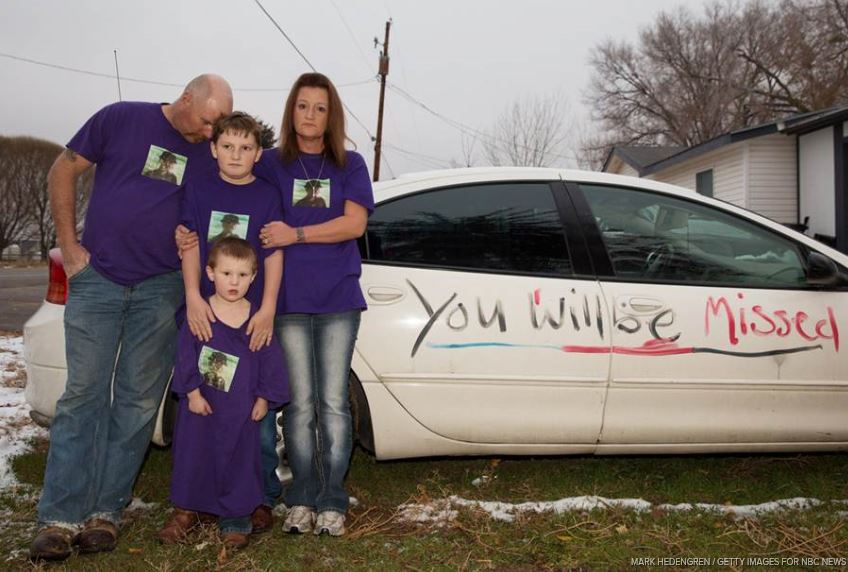Distracted driving

Distracted driving
From NBC News
Tom and Evie Lesser and their sons wear shirts in honor of their son Tommy Clark, who was killed by a texting driver.
Evie Lesser has a tattoo of her second-oldest son’s name scrawled on her left wrist: “Tommy.” Her husband Tom bears a tattoo in honor of their son across his chest.
On the night of Sept. 2 last year, Thomas LaVelle Clark, 15, also known as Tommy, was struck from behind by a pickup truck as he walked with a friend along a road near where they lived in Vernal, Utah. Clark, who was wearing a Day-Glo yellow sweatshirt, was thrown about 40 feet on impact and died the next day after being taken off life support.
The driver, Jeffery Lloyd Bascom, then 28, would later tell police he had been texting at the time of the accident. He never even saw the boy, he said. “There is no way our son could have been missed, other than flat out not paying attention,” Lesser said in an interview last week.
Bascom was sentenced in July to up to five years in prison and ordered to take part in a public service campaign about the dangers of texting and driving.
Everybody thinks they’re the exception
Safety experts and advocates say they’re struggling to convince Americans to stop distracted driving, even as a growing body of evidence shows that drivers who insist on texting or talking on cell phones while behind the wheel pose deadly threats on the nation’s roads.Survey data from State Farm released earlier this month showed that a majority of American drivers admit to distracted driving. Some forms of the dangerous habit have actually increased in recent years, especially among young drivers, according to the data. Fifty-seven percent of drivers admitted to talking on a hand-held cell phone while on the road. About 35 percent reported that they have texted while driving, up from 31 percent in 2009. Among drivers aged 18-29, 77 percent said they used a hand-held cell while driving, and 69 percent admitted to texting behind the wheel.
Not that Americans believe distracted driving is OK. Nearly three-fourths of survey respondents strongly supported bans on texting while driving, and over half supported imprisonment as the appropriate penalty for fatal cellphone-related crashes.
The problem, according to one expert, is that Americans overestimate their own ability to stay focused while driving and texting or talking on the phone. “People recognize that these things are dangerous, but they think that they themselves are good at it,” said Robert Rosenberg, an assistant professor of philosophy at the School of Public Policy at the Georgia Institute of Technology who has written about distracted driving. “Everybody thinks they’re the exception.”



